 When the NBA gets back to the business of playing basketball, Serge Ibaka might be in a position to make a huge leap forward, thanks to a cool summer internship.
When the NBA gets back to the business of playing basketball, Serge Ibaka might be in a position to make a huge leap forward, thanks to a cool summer internship.
While most NBA players in the United States have been relegated by the lockout to showing off their skills in glorified pickup games, Ibaka, the Oklahoma City Thunder’s power forward, will be practicing with and playing for one of the premier international teams and in one of the best basketball tournaments in the world.
Ibaka, who spent one season with Ricoh Manresa in the Spanish ACB league before joining the Thunder for the 2009-10 season, became a naturalized Spanish citizen in July and will play for Spain in the European championship starting Aug. 31 in Lithuania.
Such invaluable international experience should only hasten the maturation of one of the league’s more precocious players. Ibaka, at 21, led the league in blocks with 198 and was third in blocks per game (2.4).
Such accomplishments are impressive not only for a player his age but also because of the sheer number of elite players at the power forward position in the NBA these days.
Ibaka flourished at the 4 after the Thunder acquired center Kendrick Perkins from Boston at the trade deadline in February. Perkins’ presence allowed Ibaka to escape the meat grinder that is defending centers in the post and allowed Ibaka to use his athleticism — he’s a bundle of fast-twitch fiber with Patek Philippe timing — to smother opposing power forwards.
In the Thunder’s final 24 games, when he started exclusively at power forward, Ibaka averaged 11.4 points, 8.4 rebounds and 3.3 blocks per game compared with 9.2 points, 7.2 boards and 2.03 blocks in the season’s first 58 games.
The Thunder closed the season winning 19 of those last 24 games, and Ibaka had a breakout series against the Denver Nuggets in the first round, including Game 5, when he became the eighth player since 1991 to block nine shots in a postseason game — one shy of the playoff record.
Ibaka’s inexperience showed, however, against Zach Randolph of the Memphis Grizzlies in the second round and Dirk Nowitzki of the Dallas Mavericks in the conference finals. He was a minus-33 in the Thunder’s last two series compared with plus-8 in the five games against the Nuggets.
Still, there was no shame in how Ibaka played in those last two series. The position of power forward features more great players than at any other time in NBA history. Its ranks include rookies of the year (Amare Stoudemire and Blake Griffin), most improved players (Kevin Love), All-Stars, NBA champions (Pau Gasol and Kevin Garnett) and Finals MVPs (Tim Duncan and Nowitzki). Every night, every game, every play is a chance for Ibaka to glean knowledge from the best in the business.
But until Ibaka, no one in that esteemed group had ever led the NBA in total blocks.
By pounding his chest and playing to the Thunder faithful, Ibaka already has shown the ability to channel Garnett’s white-hot intensity. He also has emulated Duncan’s steely sangfroid when he blocked Nene’s late-game dunk attempt in Game 5 in the Thunder’s first-round series against the Nuggets. Ibaka’s athleticism is on par with Griffin’s. (Remember, in the dunk contest, Ibaka removed a stuffed animal that was on the rim … with his mouth.)
He might never acquire Nowitzki’s proficiency around the perimeter or finish as well or with as much ferocity at the rim as Stoudemire, but the Thunder don’t need that kind of offensive firepower from Ibaka. They already have the league’s leading scorer in Kevin Durant and an exquisite offensive talent in Russell Westbrook at point guard. What they need — and what Ibaka provides — is essential to the power forward archetype: strength, grit and intimidation.
In a league in which guards move like photons in a particle accelerator, Ibaka is the Thunder’s last line of defense. Or, because he’s so quick, the first, as the Nuggets’ Wilson Chandler found out in the first round of the playoffs as Ibaka chased him down on a fast break and smacked a layup attempt into the third row.
In his two seasons in the league, defense and energy have been his forte. That’s where Ibaka has made his name, or rather, his nickname. It doesn’t hurt that the second syllable of his last name rhymes with «block,» so sliding an «L» into his last name as easily as he slides over on help defense gives him a rock-solid nickname: «I-blocka.» His teammates call him «Air Congo.»
He can fly all right. But Ibaka has the build and the attitude to become one of the Thunder’s cornerstones. Ibaka has a 6-foot-10, 235-pound frame that looks as if it were chiseled from granite, but Ibaka’s mind and attitude are like potter’s clay. He’s eager to learn.
«every time i go to the gym on a day off and i see @paugasol there i understand why he arrived where he did in his career #motivation,» Ibaka tweeted Aug. 22.
With Spain, Ibaka will have a chance to back up Gasol and study the two-time NBA champion’s repertoire of offensive moves and excellent court vision. As for Ibaka, his Spanish teammates are glad to have him.
«Physically, [Ibaka] is a very good player, very powerful,» Gasol told The Associated Press. «He gives us another inside player to increase the level of competition on the team.»
As Durant and Westbrook did with Team USA in its run to the 2010 world championship, Ibaka should gain invaluable experience that could help him turn OKC’s big two into a Great Plains version of the Big Three.
Which, if you think about it, is a nice summer job if you can get it.
Rob Peterson is a contributor to ESPN.com’s TrueHoop Network.

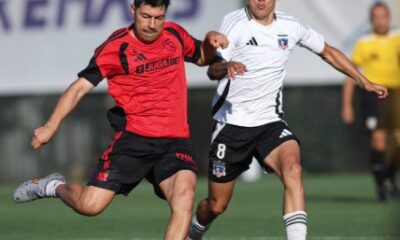
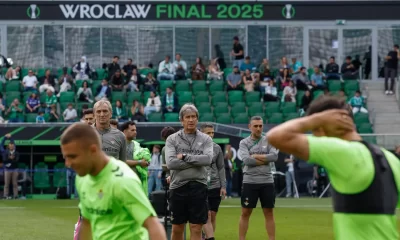
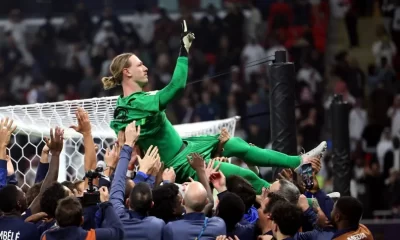
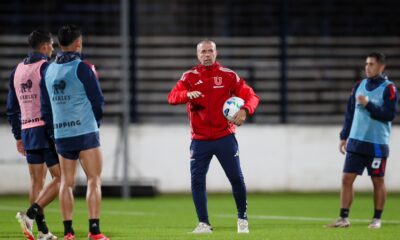
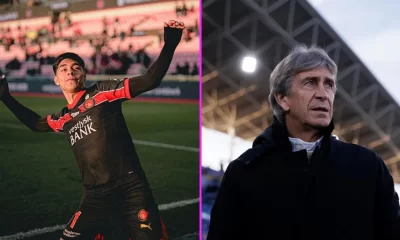










Facebook
Twitter
Instagram
YouTube
RSS